
The secret formula for Apple's rounded corners
4 min read Oct 12, 2023
If you look purely at their form, Apple’s products are all rounded rectangular slabs. Make the slab as large and thin as an open coffee-table book, and you get a Studio Display. Make it tall and hand-held, and you get an iPhone. Make it an even smaller and thicker, and you get an AirPods case.
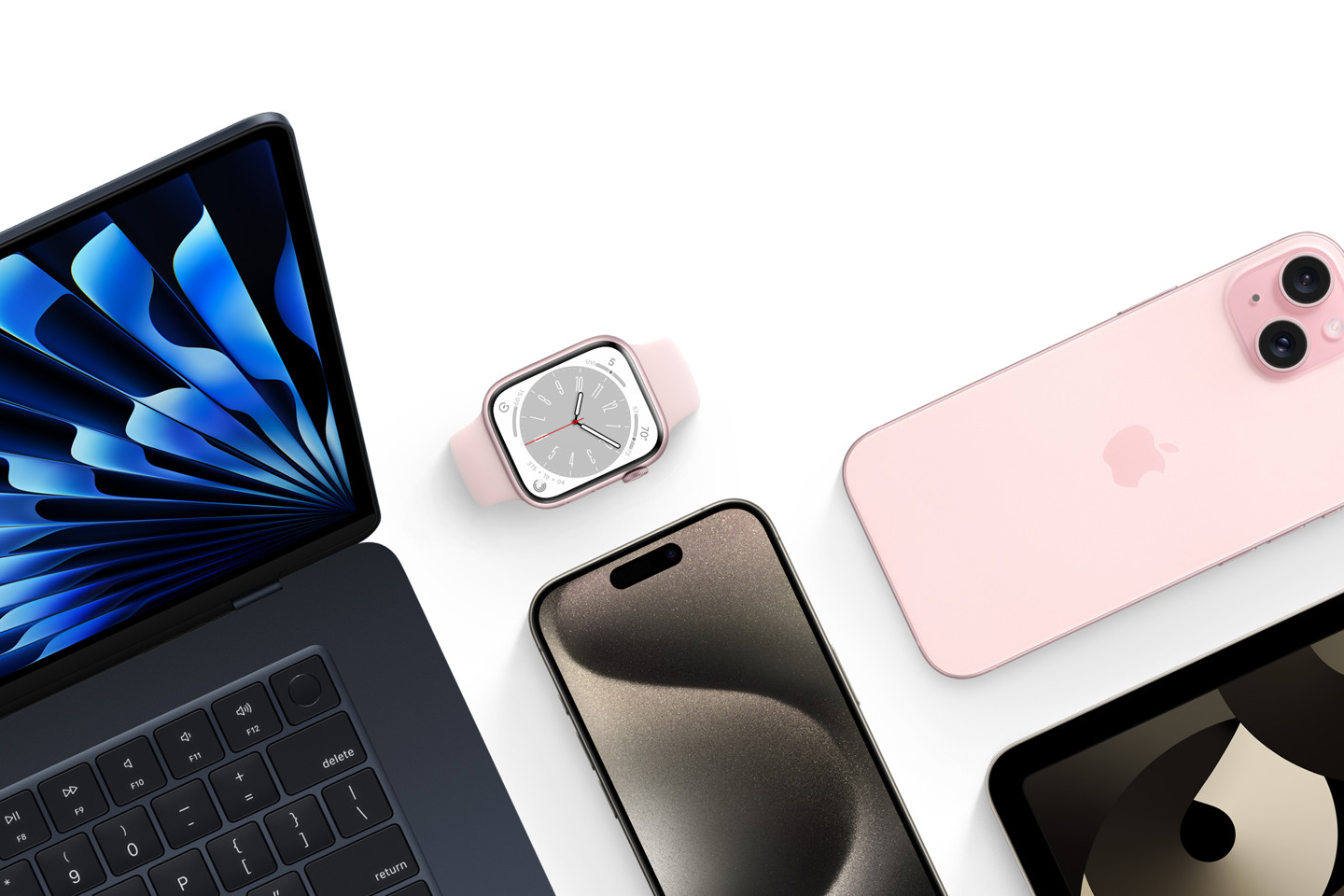
The physical dimensions are dictated first by the human body. An iPhone or AirPods case must be hand-holdable by the majority of buyers. Dimensions are further dictated by components inside. A display (as far as it remains rigid and not bendable) can never get smaller than the panel.
But how about the rounded corners?
Squircles, squircles everywhere
Why rounded corners?
Rounded corners are less likely to cut a person or other object. They are also more durable. Imagine dropping an iPhone with a sharp corner. It’s more likely to suffer a sever dent or crack versus one with a rounded corner.
Rounded objects are also seen more favorably. Universal Principles of Design explains the Contour Bias phenomenon:
“When presented with objects that posses sharp angles or pointed features, a region of the human brain involved in fear processing, the amygdala, is activated”
It’s important to state that the round corners in Apple’s products are not circular, but instead “squircles”. Squircles are complex curves that remove the discontinuity between the straight and curved sections of a surface. Look at a curved surface that isn’t a squircle and you’ll be able to see where the straight line ends and the curve starts.
Closer to the human, the rounder it is
Naoto Fukasawa, in a talk I attended years ago, showed us the following graphic when explaining the overarching philosophy behind his designs. He observed that the closer an object is to the human, the rounder it gets.
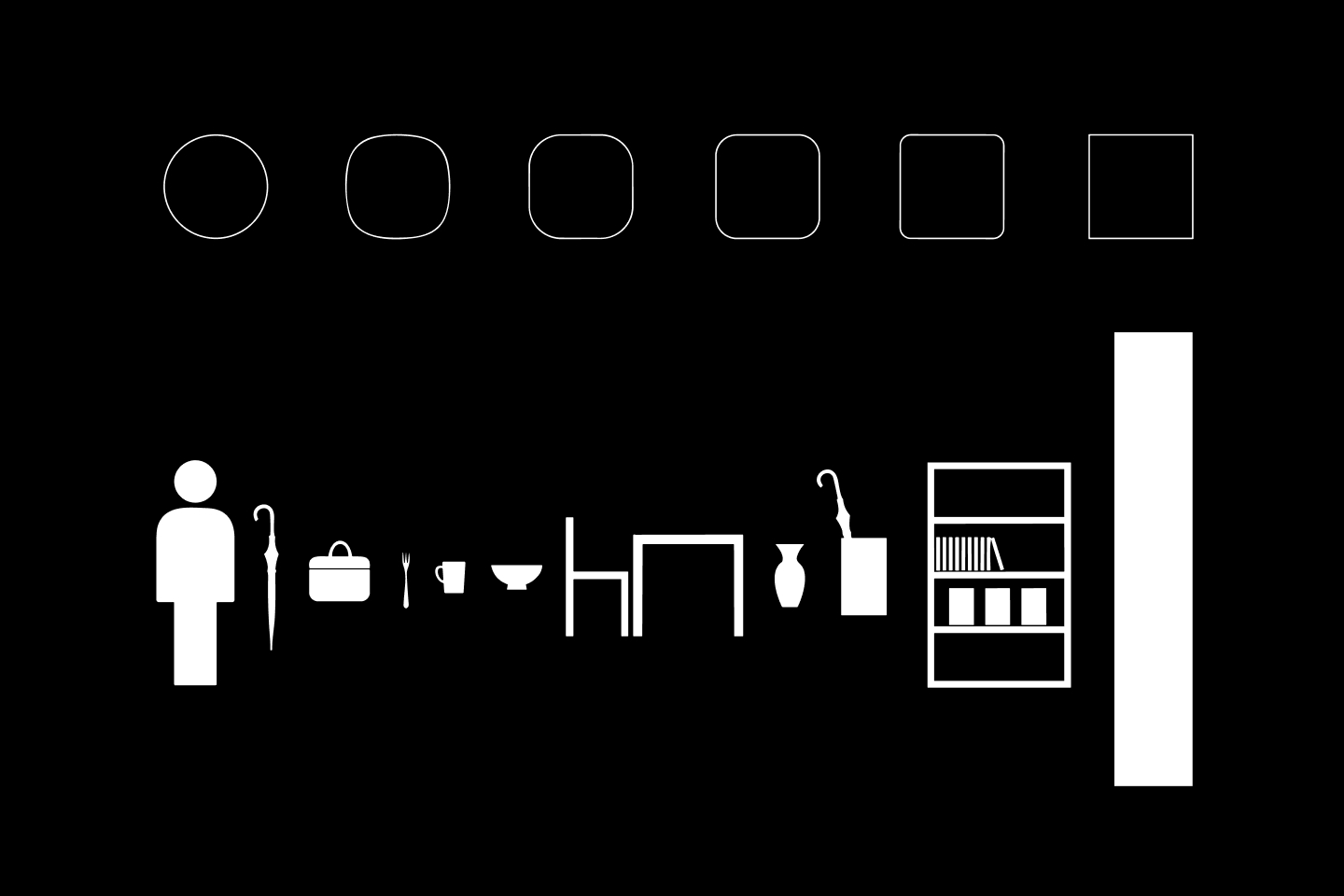
He followed this principle in how he designed appliances both large and small for Muji.
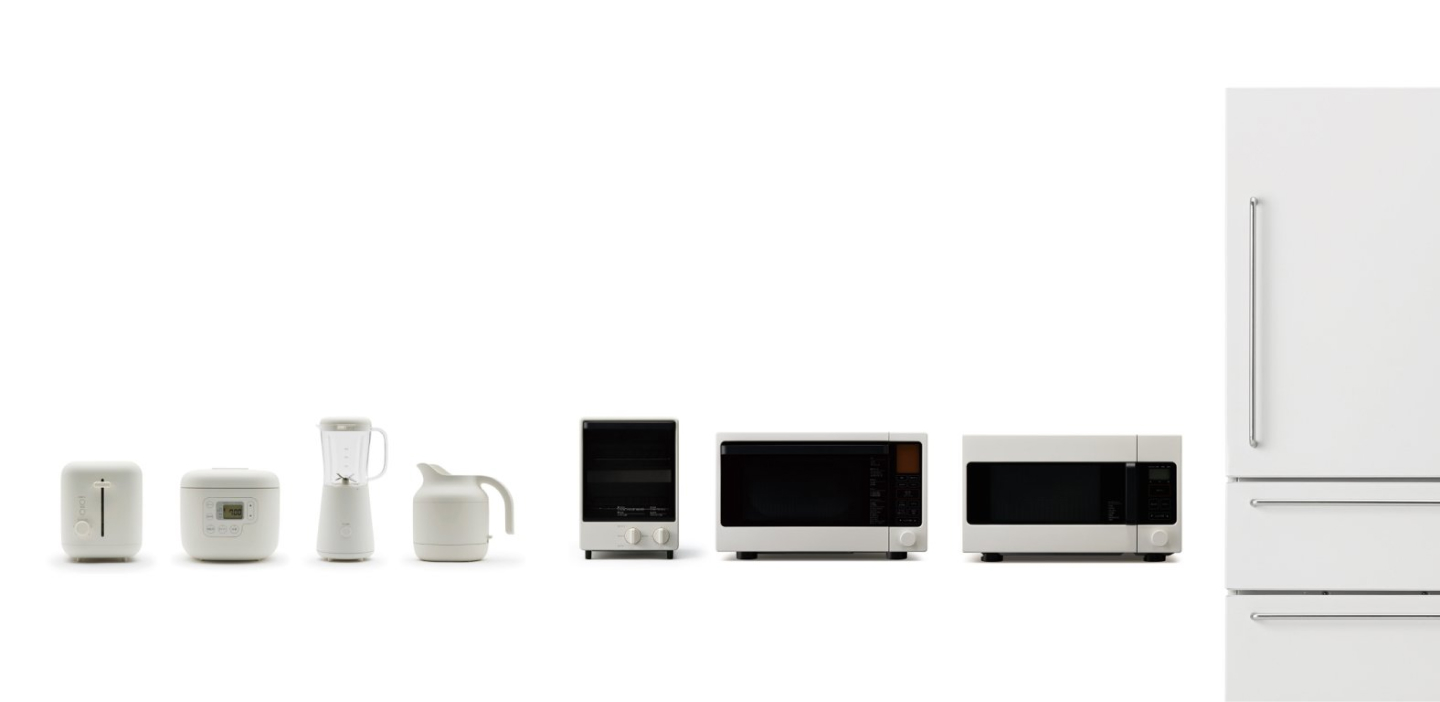
It didn’t immediately click at the talk, but I later realized that Apple follows the same idea. The small objects that are closest to our body — Apple Watch, AirPods case, Apple Pencil — are quite round. The ones furthest — desktop computers, displays — are slightly rounded, if at all.
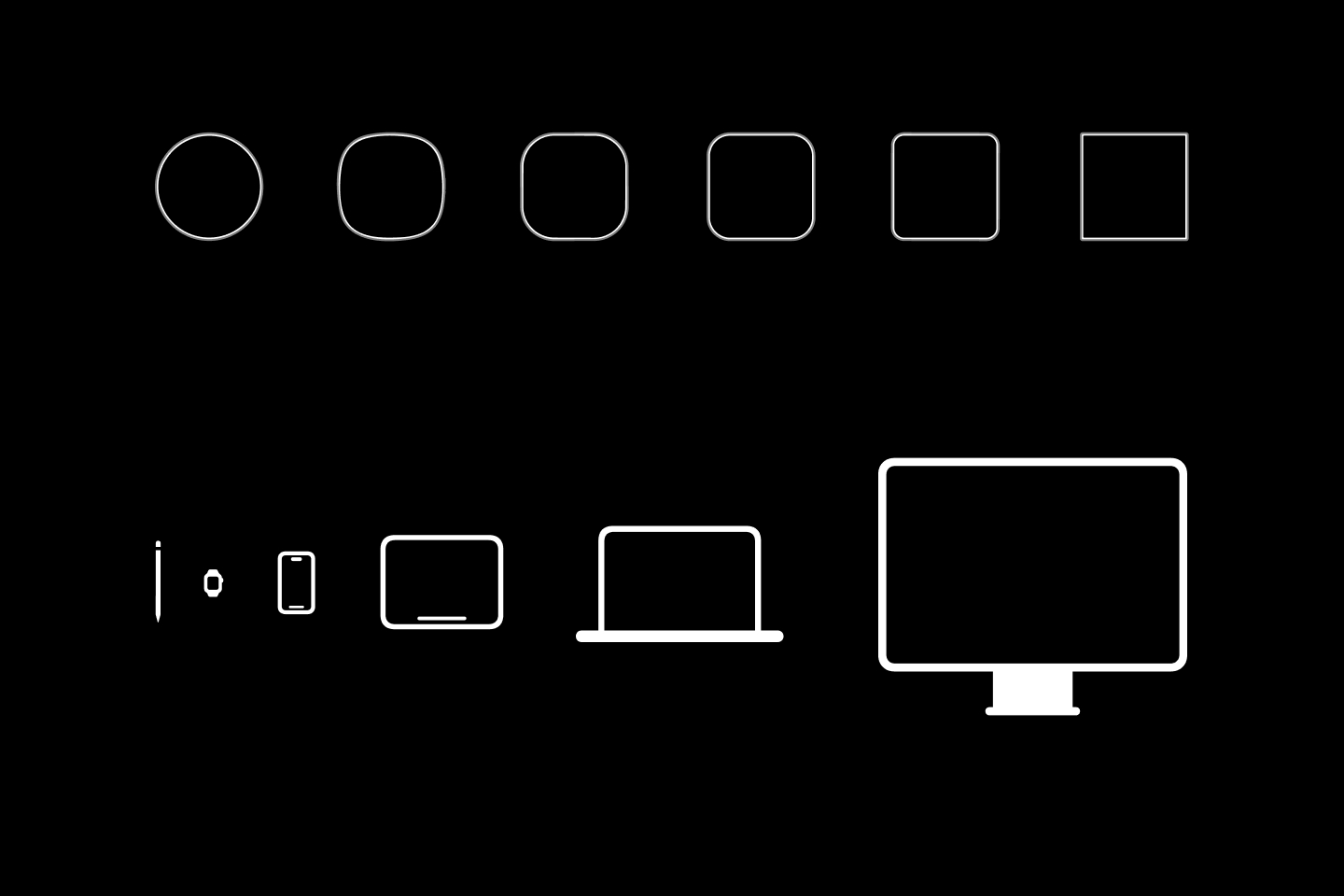
Intuitively, it makes sense. I find myself drawn to pick up and fidget with the AirPods case as if it were a pebble. However, with a display, I’m content with viewing it from the distance. There are ergonomic concerns as well. An Apple Watch with flat sides wouldn’t be comfortable as the edges could dig into the wrist.
How round?
Naturally, the next question to ask is “how round should a product be?”. Is it purely subjective, or is there a formula?
I found images of all major Apple products and started measuring. I first decided what the “front” of an object is. For a device with a display, the display-side is the front. For a desktop computer, it’s the part that faces forward on a desk.
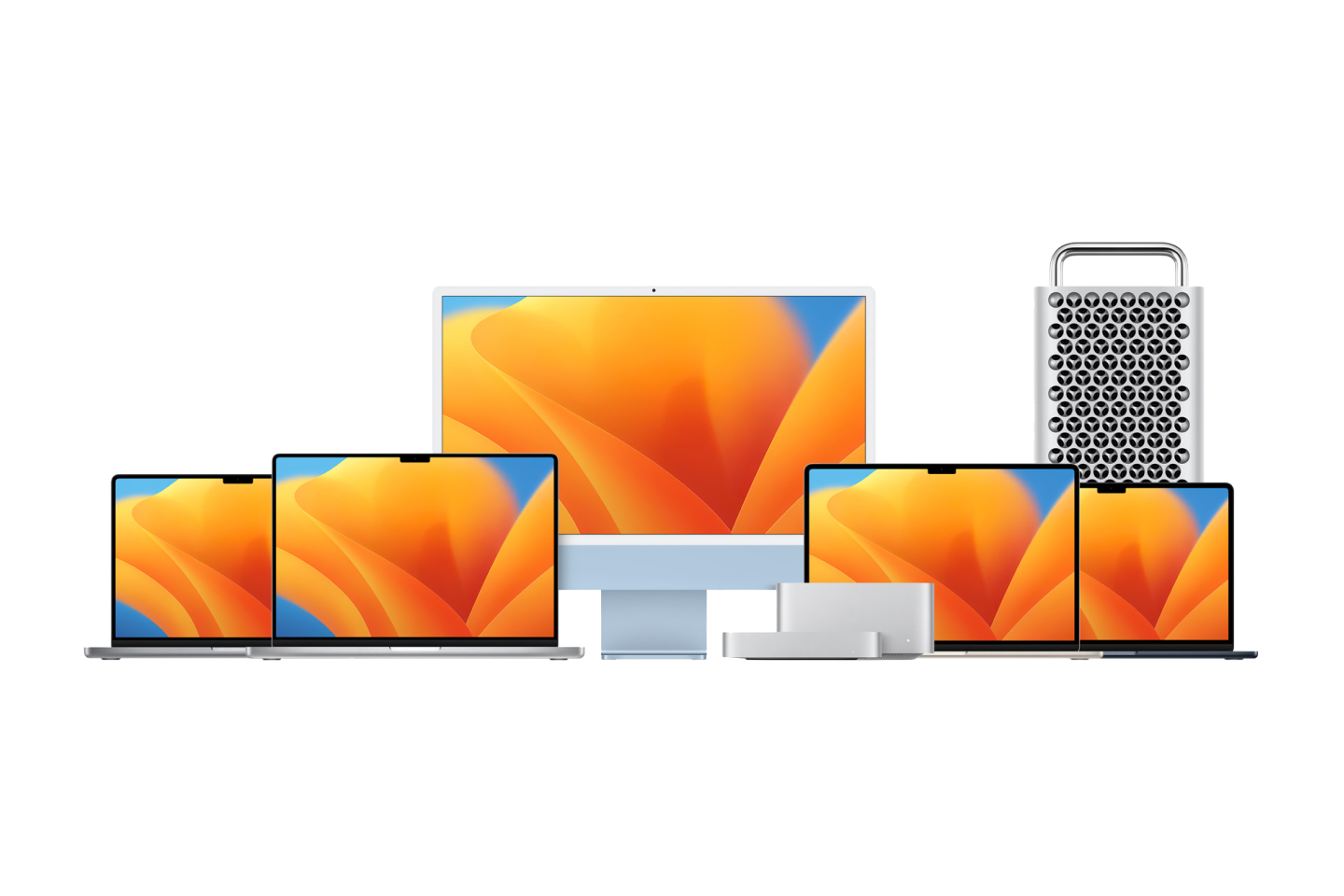
I then measured the smaller side of the rectangle and the diameter of the curve (two times the radius).
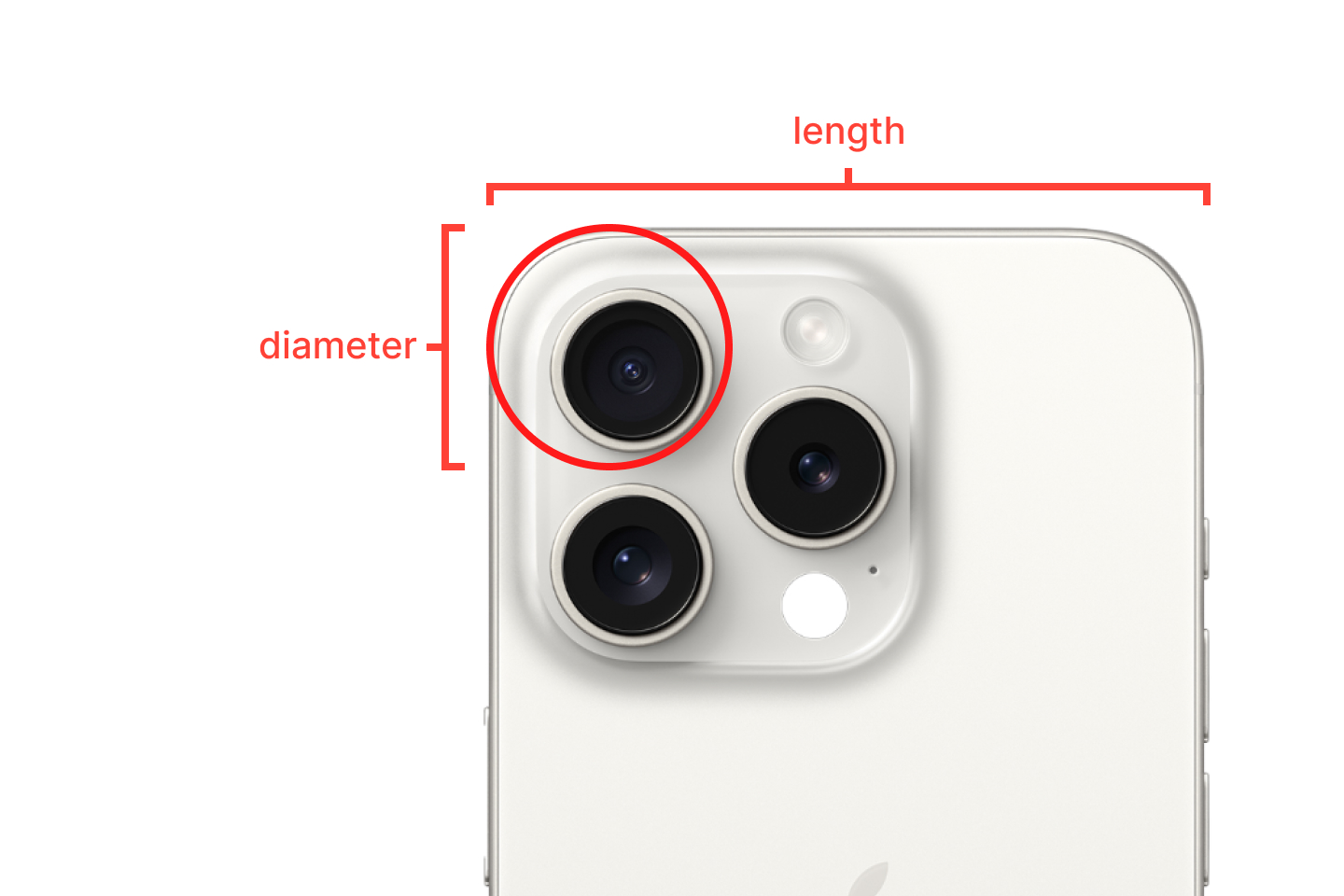
By dividing the diameter by the length of the side, I get a roundness score in the form of a percentage between zero and one hundred.
A pattern emerges
After calculating the scores, a clear pattern had emerged.
Desktop-style devices at 0%. Displays are between 2% and 3%. MacBooks are between 7% and 10%. iPads are between 12% and 18%. iPhones are around 33%.
Personal objects like AirPods and Apple Watch, have a score right around 50%. AirPods Max is 88%, but that number is likely dictated by ergonomics.
Objects closest to people, like the Apple Pencil and AirPod earbuds are 100%.
I’ve included the full list of roundness scores at the end of this post.
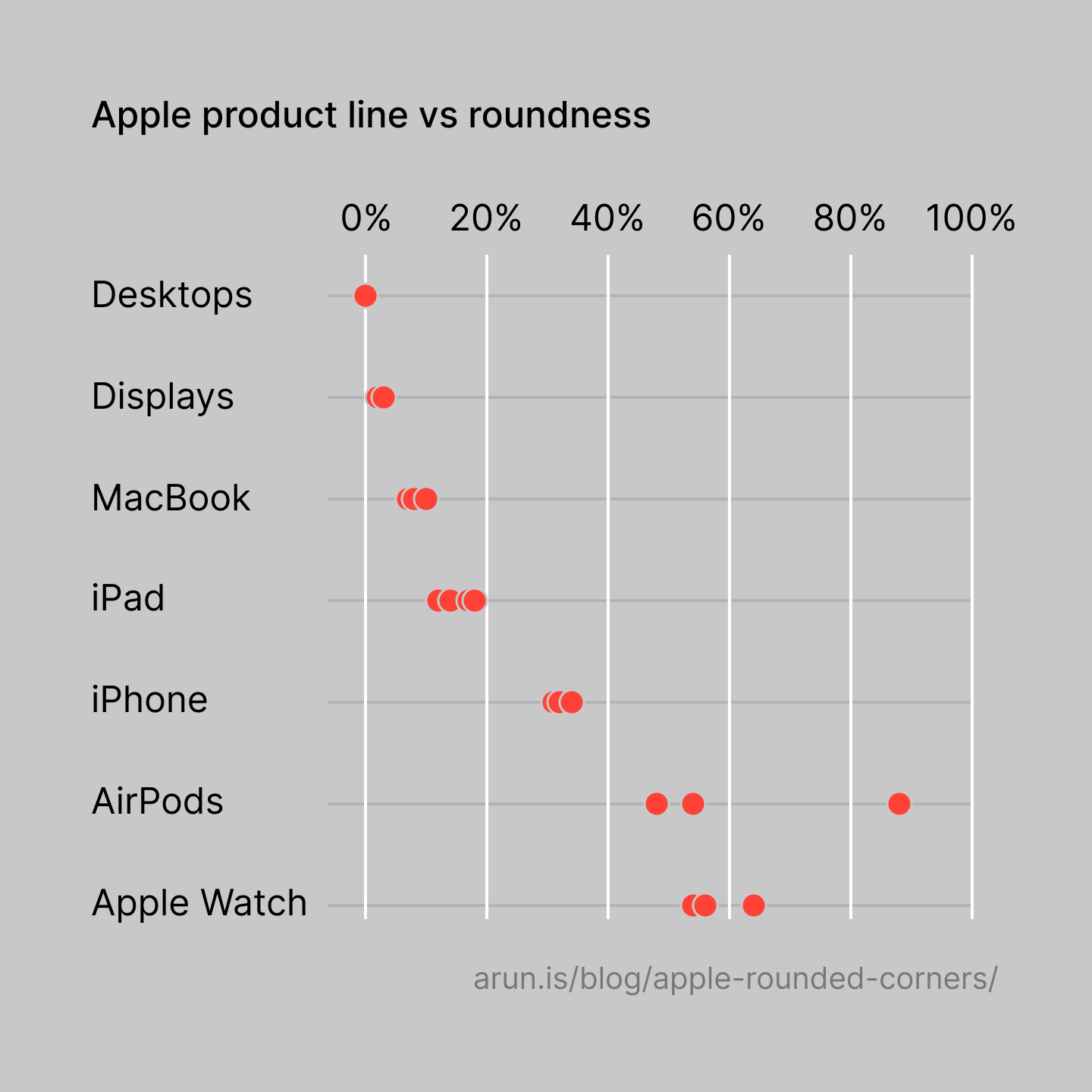
Every product category follows the “closer to the human, the rounder the object” pattern, and each product neatly sticks close to the rest of its category.
The pattern continues
Look around you. Where else do you see this phenomenon? Are there areas where the pattern breaks? How do these exceptions make you feel?
Keep a look out as Apple continues to release new products. They will likely continue to stick to this formula. We see this with the impending Apple Vision Pro, which is extremely curved in nearly every dimension.
Roundness scores
| Product | Roundness |
|---|---|
| Apple TV | 0% |
| Mac Pro | 0% |
| Mac mini | 0% |
| Mac Studio | 0% |
| Product | Roundness |
|---|---|
| Pro Display XDR | 2% |
| Studio Display | 3% |
| iMac 24” | 3% |
| Product | Roundness |
|---|---|
| MacBook Pro 16 | 7% |
| MacBook Air 15 | 7% |
| MacBook Pro 14 | 8% |
| MacBook Air 13 | 10% |
| Product | Roundness |
|---|---|
| iPad Pro 12.9 | 12% |
| iPad Pro 11 | 14% |
| iPad Air | 14% |
| iPad | 17% |
| iPad mini | 18% |
| Product | Roundness |
|---|---|
| iPhone 15 Plus | 31% |
| iPhone 15 Pro Max | 32% |
| iPhone 15 | 34% |
| iPhone 15 Pro | 34% |
| Product | Roundness |
|---|---|
| AirPods Pro | 48% |
| AirPods 3 | 54% |
| Apple Watch 45mm | 54% |
| Apple Watch 41mm | 56% |
| Apple Watch Ultra | 64% |
| AirPods Max | 88% |
Thanks to Q for reading drafts of this.